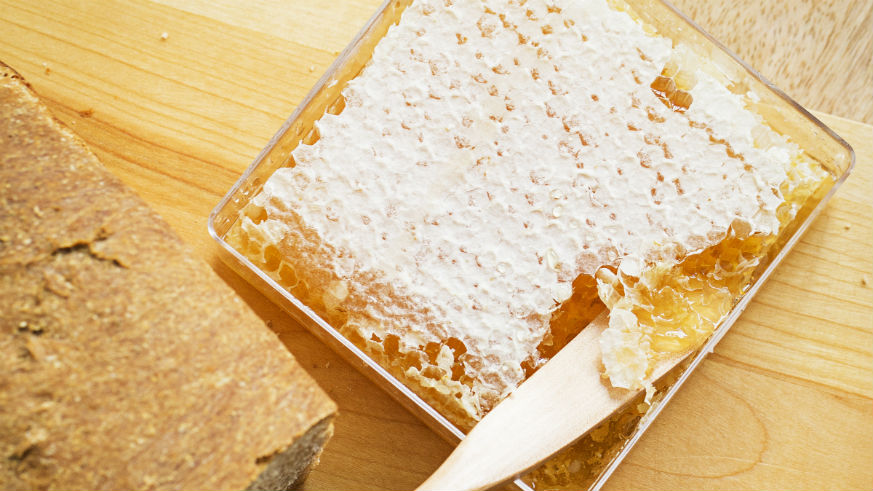If you’re like most people, you make a beeline to the doctor for an antibiotic when you start sniffling and sneezing, but fans of propolis say you should consult a few bees instead. But wait, what is propolis?
What is propolis?
What is propolis exactly? Propolis — also known as “bee glue” — is a sticky, brownish substance that occurs when bees combine sap from evergreen trees and their own discharges and beeswax. The substance is then used as a coating when they build their hives.
And it’s also shown to have a number of antifungal, antiviral and antibiotic uses.
How propolis works
“Propolis is really the OG antibiotic,” Beekeeper’s Naturals founder Carly Stein told Well + Good.
“The word ‘propolis’ was coined by Aristotle and means ‘the defender of the city” and dates back to 300 BC when people used it like the antibiotics of today,” according to Stein. The Greeks and Assyrians used it to treat abcesses, tumors, wounds and infections, while Egyptians used it to embalm mummies.
The exact nutrient content of propolis is hard to pin down because the 300-plus components found inside differ depending on the country — like propolis from bees in the United States will likely have a different makeup than the propolis made by bees in Brazil. However, it’s believed that antioxidants known as flavonoids and polyphenols are what gives the propolis its antibacterial and antifungal properties.
And the science seems to back it up.

In one double-blind study, children suffering from a severe viral condition were either given just antibiotics, or antibiotics plus propolis. The group who took both the propolis and antibiotics healed much faster than the antibiotic-only group.
Other studies showed that it can help heal burns and cold sores faster — and that it can help stop certain cancers when used as a complementary treatment with other cancer-fighting therapies.
Is propolis safe?
There hasn’t been enough research conducted on propolis to know if it’s safe for all people. However, you already ingest some propolis if you eat honey, so if you don’t have an allergy to bees or honey you should be fine. Some people do develop propolis allergies with prolonged exposure (like beekeepers), so you should keep that in mind if you decide to take propolis for an extended period of time.
Propolis: How to use
Propolis is available over-the-counter at health food stores in everything from capsules to spray-on ointments for burns.
“The main thing to pay attention to is the sourcing, because you won’t want any pesticide residue to undo all the helpful benefits,” Stein told Well + Good.
So, maybe pop a propolis capsule or two the next time you feel a cold coming on, or spray some on if you get a minor burn. It can’t hurt (unless you’re allergic) — and it might even save you a trip to the doctor for a prescription.



















